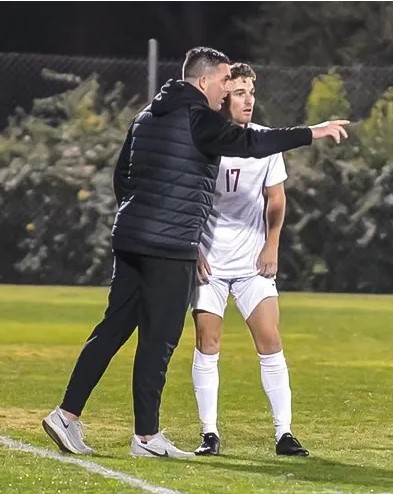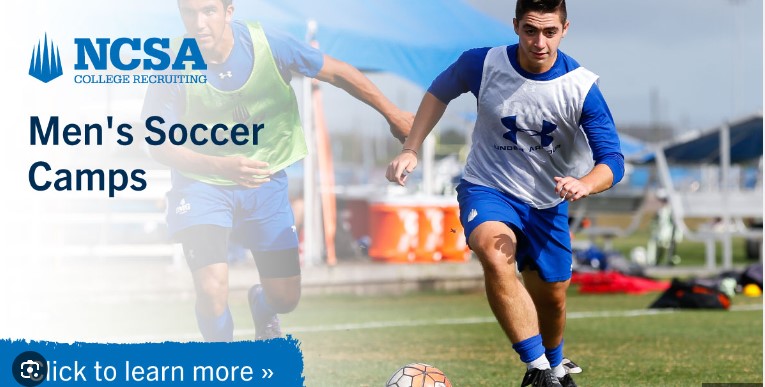Introduction
If you’re a high school soccer player aiming to play at the collegiate level, you’ve likely heard of soccer ID camps. But what exactly are they, and are they worth attending? This post will explore what these camps offer, the benefits, and how to choose the right ones to maximize your chances of getting recruited.
Table of Contents
Understanding Soccer ID Camps
Soccer ID camps are intensive training sessions where high school players get to showcase their skills in front of college coaches, many with the hope of securing a spot on a college team. These camps vary in length, typically lasting anywhere from a single day to a whole week. They are hosted either by colleges themselves or by independent organizations that invite coaches from various institutions.
The main draw of these camps is the direct exposure they provide to the coaching staff of potentially interested collegiate programs. This exposure is crucial because it goes beyond sending videos or playing in regular tournaments—coaches get to see you play live and evaluate your game performance under real conditions.
Benefits of Attending Soccer ID Camps
Attending soccer ID camps comes with several key benefits:
- Direct Exposure to College Coaches: This is your chance to be seen and evaluated by multiple college coaches in one place.
- Experience College-Level Soccer: The camps are structured to mimic a college training environment, which helps you understand the level of play and commitment required.
- Networking Opportunities: Building relationships with coaches and other players can open doors beyond what you might achieve on your own.
These benefits make soccer ID camps a significant opportunity, especially if you’re looking to make an impression that could lead to a scholarship or spot on a college team.
Considerations: Are They Worth the Investment?
When it comes to soccer ID camps, not all are created equal. Before shelling out your hard-earned cash, it’s important to discern the true value of the camp you’re considering. A big part of this evaluation is understanding the difference between camps designed primarily as “money makers” and those that genuinely offer substantial opportunities for recruitment by college coaches.
Money Maker Camps: Buyer Beware
First, let’s talk about those “money maker” camps. These are often characterized by high attendee numbers, which might seem exciting at first because of the sheer size of the event. However, a large number of participants can actually be a red flag. More players mean less individual attention, fewer touches on the ball, and less time to impress any college coaches who might be watching. These camps may be more focused on profit through high enrollment rather than providing quality exposure to college coaching staff. They often spend heavily on marketing to attract as many attendees as possible, but the presence of college coaches could be minimal, or the coaches might be from programs not aligned with your aspirations.
Camps with Real Recruitment Opportunities
On the other hand, camps that are truly focused on recruitment opportunities usually have a different setup. They typically feature lower player-to-coach ratios, which allows for more personalized interaction and meaningful evaluation. These camps often provide detailed information upfront about the coaches who will be attending—information that includes not just names and titles but also the histories and achievements of their programs. This transparency helps you understand who you’ll be showcasing your skills to and whether these programs fit your athletic and academic goals.
Evaluating the Camp’s True Intent
So, how can you tell which type of camp you’re dealing with? Here are a few tips:
- Research the Camp’s Reputation: Look for reviews from previous attendees. What have past participants said about their experiences? Positive feedback from attendees who’ve gone on to play at colleges can be a good indicator of a camp’s effectiveness.
- Analyze the Coach List: Are there coaches from programs that interest you? Are these coaches decision-makers for their teams (like head coaches or recruiting coordinators), or are they lower-level assistants who might have less influence?
- Understand the Costs vs. Benefits: Evaluate what you’re getting for the registration fee. Does the cost align with the opportunities it promises? Camps that offer detailed recruiting profiles, video analysis, and guaranteed playing time might justify a higher fee.
Choosing the Right Soccer ID Camp

With numerous camps to choose from, selecting the right one can feel overwhelming. Here’s how to narrow down your options:
- Research the Camp’s Reputation and Coach Line-up: Ensure the camp is well-regarded and hosts coaches from programs you’re interested in.
- Location and Timing: Consider camps that are held at or near schools you want to attend, and make sure the dates don’t clash with other important events in your schedule.
- Goals and Focus: Some camps might focus more on training while others emphasize exposure. Choose based on your personal needs.
Preparation Tips for Attending an ID Camp
Proper preparation for a soccer ID camp can significantly enhance your chances of making a lasting impression on college coaches. Beyond just physical and technical readiness, strategic pre-camp engagement with coaches can set you apart from the crowd. Here’s how to prepare effectively:
Establish Early Contact with Coaches Before you even step onto the field, start building relationships with the coaches who will be at the camp. This can be a game-changer. Sending introductory emails, sharing highlight videos, and mentioning any showcases you’ve participated in helps to create a preliminary connection. Coaches receive countless emails from hopeful players, so your goal is to make your correspondence stand out by being personal and professional.
Why Early Engagement Matters When a coach arrives at a camp, they already have a mental list of players they’re keen to watch. If you’ve already sparked a coach’s interest through prior interactions, you’re likely to be one of those players. This pre-established interest means you’re not just another face in the crowd; you’re a known entity, and coaches will pay more attention to your performance. Essentially, you’re starting the camp from a position of advantage, where coaches are eager to see if you live up to the potential your previous communications have suggested.
Crafting Effective Communications
- Personalized Emails: Tailor your emails to each coach. Mention specific aspects of their program that attract you and how you see yourself fitting in.
- Highlight Videos: Keep your highlight video short and sweet, focusing on your best plays and what showcases your unique skills.
- Showcase Participation: If you’ve attended showcases, mention these in your communications. If possible, include any accolades or notable mentions you received.
Physical and Technical Preparation
- Fitness: Soccer ID camps are physically demanding. Ensure you’re in top physical condition by adhering to a fitness regimen that mimics the intensity you’ll face at the camp.
- Skill Sharpening: Work on your technical skills, especially those you know coaches will be watching closely, such as dribbling, passing, and shooting accuracy.
- Tactical Understanding: Understanding different game situations and having strong decision-making skills will show coaches that you’re a smart player.
Mental Preparation
- Set Clear Objectives: Know what you want to achieve at the camp. Setting specific goals can help keep your performance focused and intentional.
- Stay Positive and Resilient: Coaches are watching how you handle pressure, setbacks, and interactions with other players. Maintaining a positive attitude and resilient spirit is crucial.
By arriving at a soccer ID camp well-prepared and with a pre-established connection with the coaches, you dramatically increase your chances of being noticed and making the most out of the opportunity. Remember, the more a coach knows about you beforehand, the more likely they are to watch you closely during the camp—and that’s your chance to shine.
What to Bring to a Soccer ID Camp
Packing appropriately can affect your performance and comfort:
- Essential Gear: Bring your soccer equipment, including cleats, shin guards, and training attire.
- Health and Hydration: Pack snacks, water bottles, and any required medication.
- Additional Supplies: Consider extra items like sunscreen, extra socks, and a notebook to jot down feedback or tips from coaches.
Common Mistakes to Avoid
Many players inadvertently undermine their chances by making preventable mistakes:
- Ask The Right Questions: At the end of the camp, stay the longest, help the coaches pick up, talk to the coaches, and the most important questions to ask the coach is “What college level do you believe I can play?” and “What do I need to improve on do become a specific level player?” The feedback you get can be incredibly valuable and give you focus in your recruiting efforts. Once the coach gives you their feedback, make sure to follow up by asking the coach if they would be a reference for you to other coaches at that level. If the coach agrees to this, you now have a great reference when marketing yourself to other coaches. You can mention in communications that this coach said you were a specific level of player and they would be a reference for you.
- Neglecting to Follow Up: After the camp, send thank-you emails to coaches you interacted with, expressing your interest in their program or their feedback on your strengths and weaknesses.
- Lack of Engagement: Show enthusiasm and be proactive in all activities. Remember your teammates names at the camps and use them when playing. Coaches notice players who are mentally present and engaged.

Alternative Paths to College Soccer
Soccer ID camps are not the only pathway to college soccer. Consider other avenues such as:
- Playing in High-Level Youth Leagues: Continuous play at high levels can also attract attention from college scouts.
- Video Submissions: A well-edited highlight reel sent to coaches can pique their interest and prompt further evaluation.
Conclusion
Soccer ID camps can be a valuable part of your journey to playing college soccer, provided you choose wisely and prepare adequately. They offer a unique blend of exposure, experience, and education that can significantly enhance your chances of recruitment.
Call to Action
Have you attended a soccer ID camp? Share your experiences in the comments below to help others make informed decisions about their potential paths to college soccer. Interested in more tips on navigating the world of college soccer recruitment? Check out our other articles for more insights and guidance.


